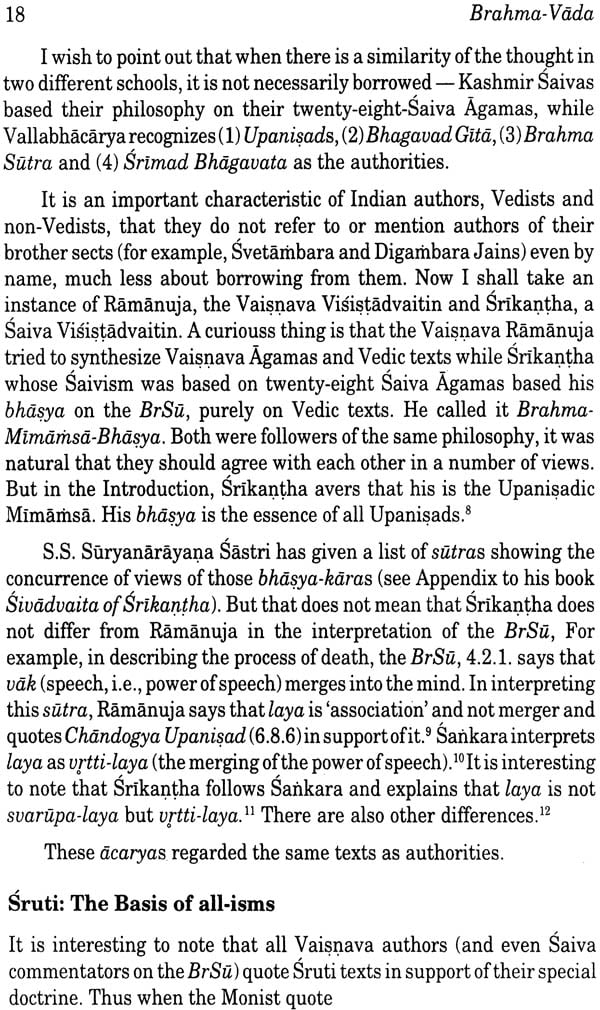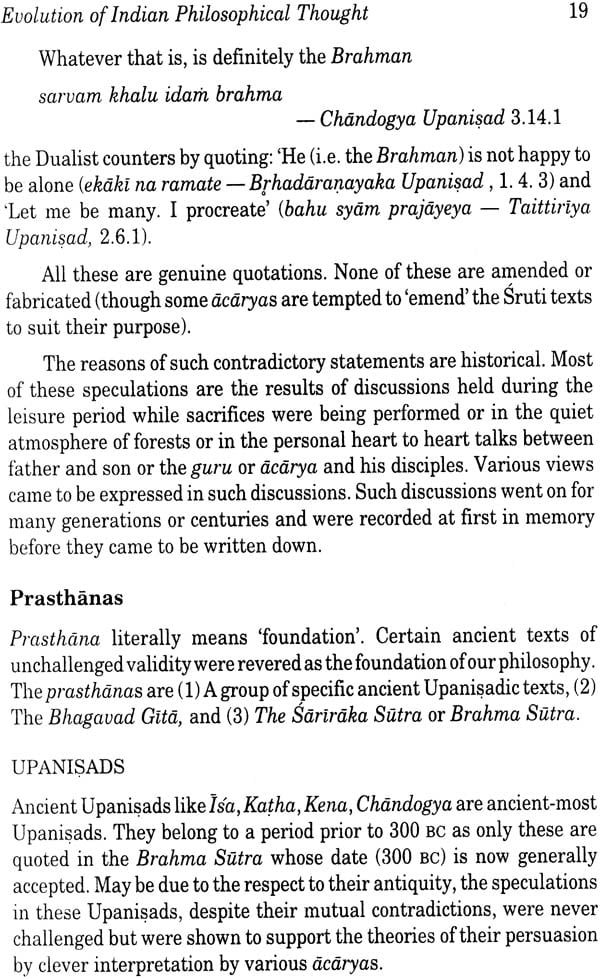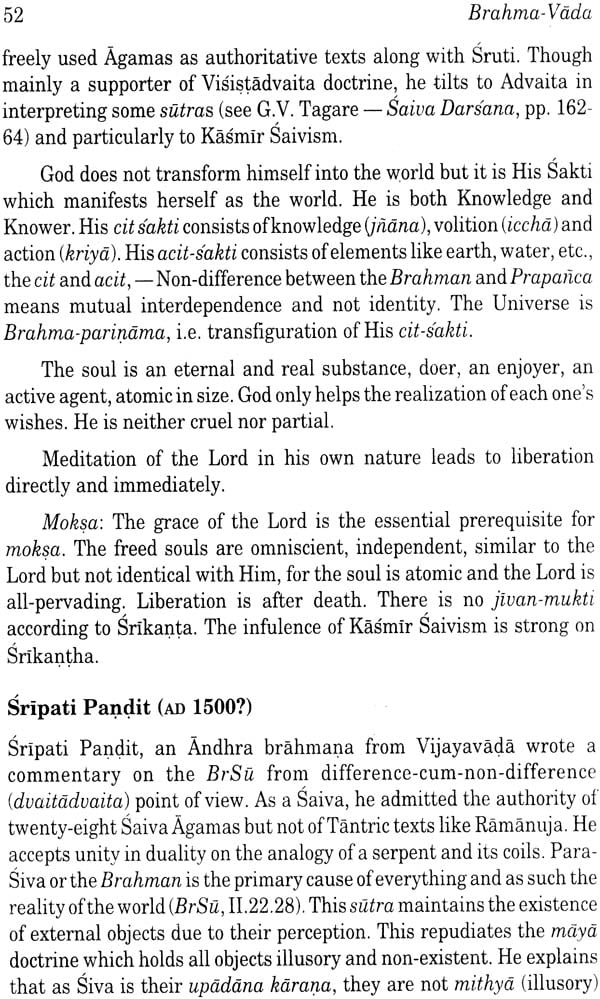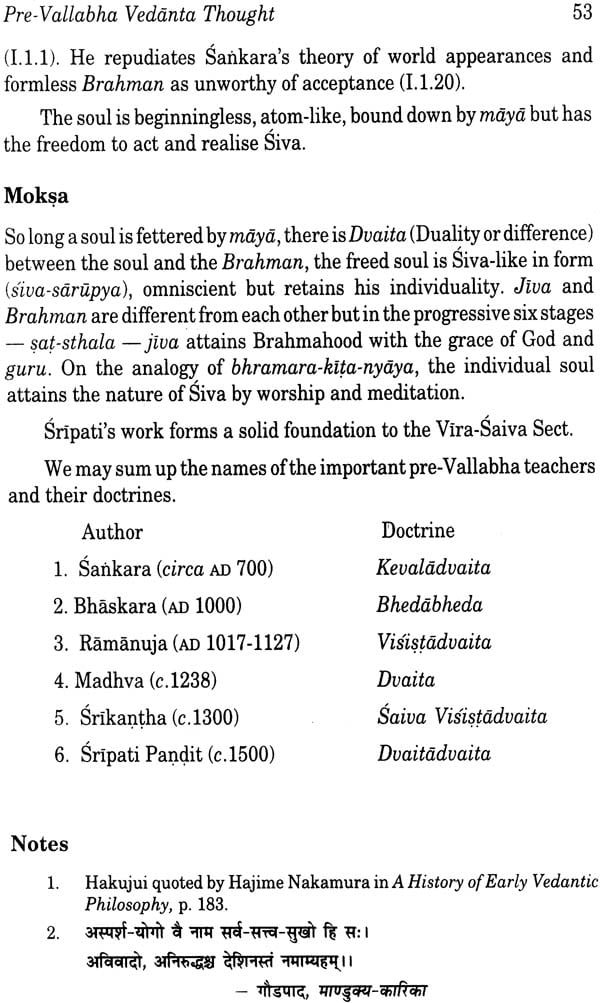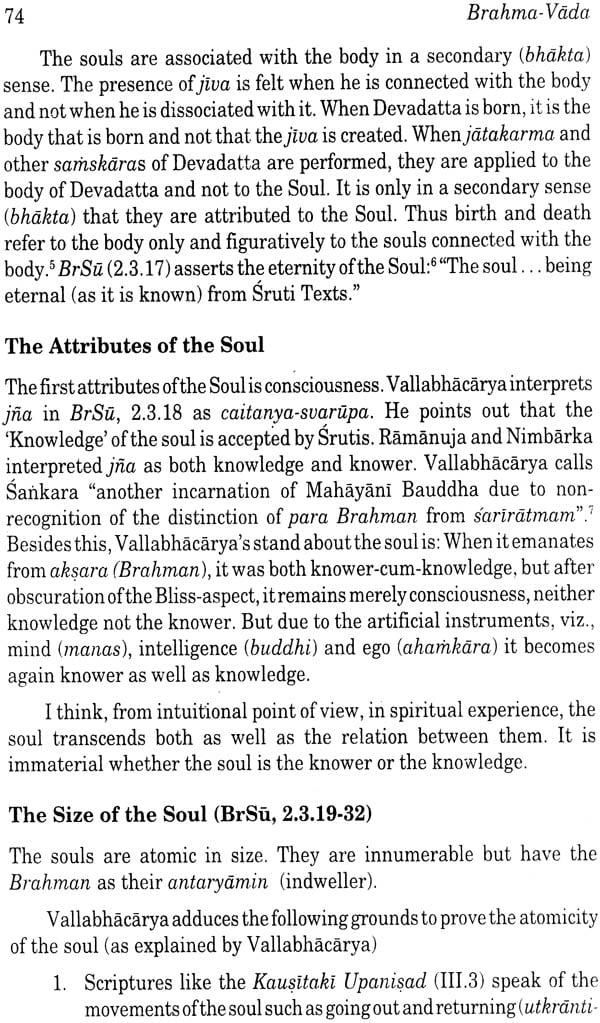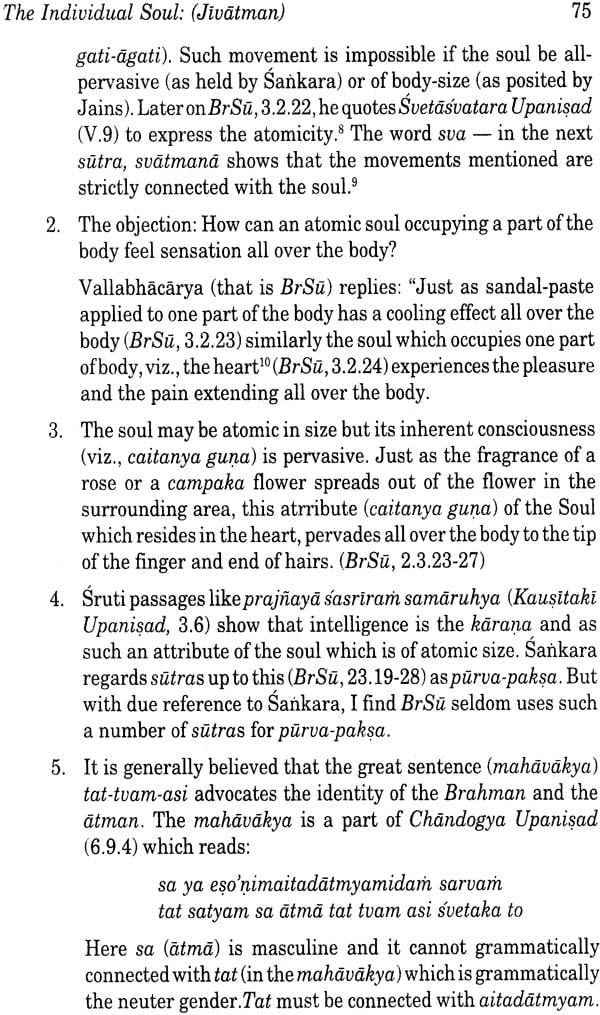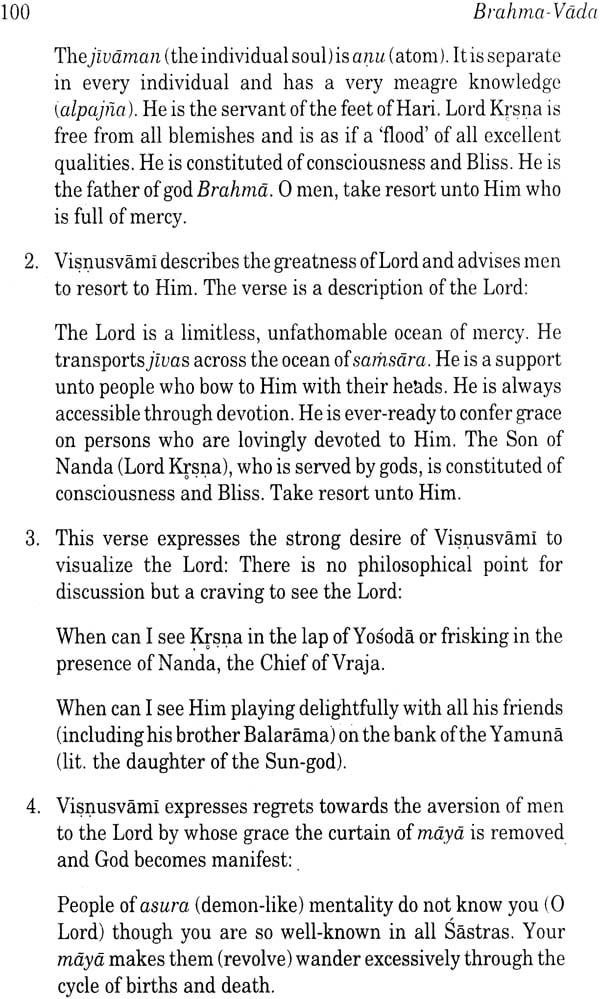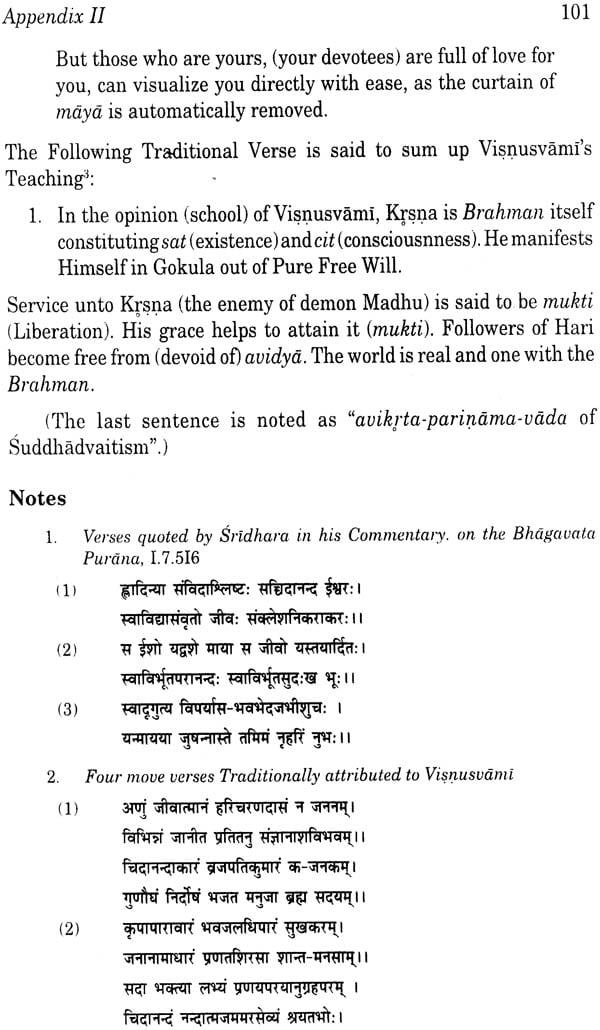
Brahma-Vada (Doctrine of Sri Vallabhacarya)
Book Specification
| Item Code: | IDD125 |
| Author: | G.V. Tagare |
| Publisher: | D. K. Printworld Pvt. Ltd. |
| Language: | English |
| Edition: | 1998 |
| ISBN: | 8124601127 |
| Pages: | 132 |
| Cover: | Hardcover |
| Other Details | 8.8" X 5.8" |
| Weight | 300 gm |
Book Description
From the Jacket :
Stirred on, perhaps mystified, by Nature's grand design, the Vedic seers pondered upon the nature of Ultimate Reality: 'Brahman', and how it is related to Man and the World. Over the time, these early reflections turned into Profound, intricately metaphysical discussions, even polemics. And the dialogue continued vigorously in the post-Upanisadic period - leading to the emergence of many spiritual-metaphysical schools of thought, represented notable by Gaudapada's Ajata-Vada, Sankara's Advaita (Kevaladvaita), Bhaskara's Bhedabheda-Vada, Ramanuja's Visistadvaita, Madhva's Dvaita, and Sripati Pandit's Dvaitadvaita (also called Sakti Visistadvaita). Dr. Tagore here tries to locate Sri Vallabhacarya's worldview in his centuries-long discourse on Brahman.
A highly erudite, Telugu Brahmin, the great Acarya Sri Vallabha: 1478(?) - 1530 AD, was not only involved in the metaphysical niceties of the Brahman-related dialogue, but also came to develop his own doctrine, called Suddhadvaita which, literally meaning "pure advaita", views Brahman as "pure" (suddha) Karya-Karana-Rupa: the cause and effect (of the universe), without the least mix of maya. Highlighting the tenets of his Brahma-Vada, the book spells out Sri Vallabha's views of Ultimate Reality (Brahman/Krsna). Individual Soul (Jivatman), and the Phenomenal World (Jagat), together with his concepts of Aksara Brahman and Pusti Bhakti.
The author charts the historical development of Brahman-Vada, underscoring therein the uniqueness of Sri Vallabha's position. And also the relevance of his message of Bhakti-Karma-Samuccaya to the distraught, tension-ridden world of ours.
About the Author :
G.V. Tagare, a former Member of the Maharashtra Education Service, retired as Professor of Education from the Government Secondary Training College, Kohlapur.
A versatile scholar, untiring researcher and prolific author, he has written on diverse themes from Indology, linguistics and education. In a addition, his published work includes translations of over half-a-dozen Mahapuranas, critical editions of Sanskrit texts and histories (in Marathi language) of Prakrit, Pali and Assamese literatures. Dr. Tagare is also known for discovering several old, unpublished manuscripts: in both Marathi and Sanskrit.
| Foreword | v | |
| Preface | vii | |
| Abbreviations | xiii | |
| Introduction | 1 | |
| 1. | Vallabhacarya: A Life-Sketch | 5 |
| 2. | Evolution of Indian Philosophical Thought | 13 |
| 3. | Pre-Brahma Sutra Teachers | 25 |
| 4. | Pre-Vallabha Vedanta Thought | 41 |
| 5. | The Concept of the Deity | 55 |
| 6. | The Concept of Aksara Brahman | 67 |
| 7. | The Individual Soul (Jivatman) | 73 |
| 8. | The Jagat (world) | 85 |
| 9. | Epilogue | 91 |
| Appendices | ||
| I - Pusti Bhakti | 95 | |
| II - Verses attributed to Visnusvamin | 99 | |
| Bibliography | 103 | |
| Glossary of Sanskrit Terms | 105 | |
| Subject Index | 111 | |
| General Index | 115 |
